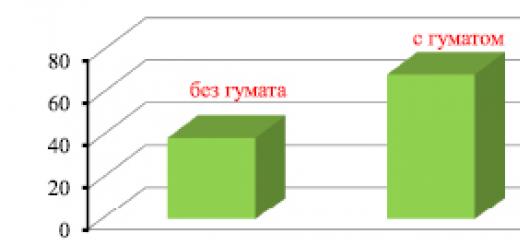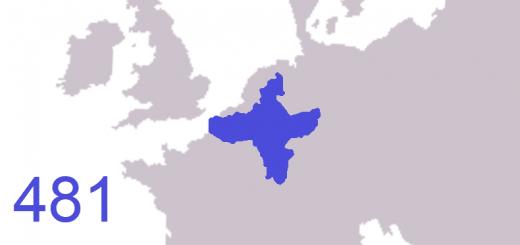Everyone probably knows about the division of people according to their type of mentality into humanists and mathematicians. From the first years of a child’s life, caring mothers become interested in how each of them manifests itself at different ages and what is the best way to keep the baby occupied, depending on his type of thinking.
What is the difference between mathematicians and humanists?
If your child has a mathematical mind, then exact sciences will be easy for him. Moreover, most likely, from an early age he has a good memory, developed logical thinking, and the decision difficult riddles and puzzles are a joy for him.
If the child has a humanitarian mindset, then solving logic problems is a burden for him. It is believed that humanists are sublime, creative people, with well-developed imagination and intuition, devoid of standards and “frameworks”, with unlimited thinking. They often draw beautifully, have an ear for music, and have a developed sense of beauty.
Test to determine a child's inclinations at an early age
If your child:
- Loves to color.
- Can't solve simple puzzles for kids his age.
- Requires proof of the veracity of the tale.
- It has an excellent sense of smell and is sensitive to odors.
- Prefers games like “memory”, lotto, checkers.
- Loves role-playing games (mother-daughter games, war games).
- He thinks very soberly and clearly, amazing his parents and their friends.
- Likes realistic stories about children or animals more than fairy tales.
- Afraid of the dark.
- He talks a lot and often comes up with interesting tales and stories.
Answers “yes” to questions 1, 2, 4, 6 and 10 indicate that your child is more likely to be a humanitarian. Answers “yes” to questions 3, 5, 7, 8 and 9 indicate that he probably has a mathematical mind.

What is the best way to keep a child occupied in order to develop his abilities from childhood?
Determining who your child will be in the future when he is still small is quite difficult. The main task of parents is not to teach him to read or write as early as possible, but to teach him to reason independently and think logically, because these are the qualities that adult life will help him analyze situations in any profession he chooses.
It's not that difficult. Start by reading stories, but after reading, ask your child a few questions about what he heard. Let your child try to come up with his own ending for the story. Buy him coloring books, sketchbooks, and take part in activities with him. It's good if you have some musical instruments at home. And you can be sure that a child who has been comprehensively developed since childhood will not become just a “mathematician” or a “humanitarian.” If you teach him to think big, he won't have any problems learning in any of his school subjects.
Scientists say that there are no more than 1-2% of children who have a pronounced aptitude for only one field of science, and they themselves easily make it clear that they are interested in studying. Only 12% of very capable children have a clearly defined inclination to study precise or humanities, and still they cannot be called “pure” technicians or humanists. Approximately 5-8% of gifted children demonstrate high abilities in studying both the exact sciences and the humanities.

How children are divided according to their mentality
In principle, every person is born with the inclinations for any type of activity, because wise nature generously endows us with opportunities. But not every person develops these inclinations into abilities.
Until your child reaches high school, it will be very difficult to determine exactly what he is more inclined to, and is it necessary? IN junior classes primary school training is aimed at developing the abilities that are necessary to master any field of knowledge, and in the future, any profession - in other words, the child is taught to learn. And this is correct, because the mental processes that influence the formation special abilities child, develop until high school, and only by the age of 13-14 years does the formation of different types thinking. Now it becomes noticeable which school subjects are easy and enjoyable for your child, and which do not arouse much interest.
Of course, we must take into account that interest in school subjects and assessments give a realistic idea of a child's abilities. Newton was considered mentally retarded at school. A smart, talented, gifted child at school can be either an excellent student or a poor student. Grades often depend not only on intelligence, but also on psychological characteristics student, and the nature of his relationships with teachers.
In fact, the division between mathematicians and humanists is not based on any serious research in the field of the brain. Most often, such stamps are awarded to students by school teachers. If a child was unable to quickly give an answer in class, to instantly solve an example in his head, he was confused at the board, the diagnosis is immediately ready - he is a humanist, he is not able to solve problems. But in fact, the reason for such a child’s behavior in class may be simple constraint or characteristics of his nervous system.
What tests determine a child’s aptitude for studying science?
Professional psychologists have developed a lot of special tests to determine the inclinations of children of different ages. If you want to find out your child's mentality in advance, contact a professional psychologist. The specialist will ask him to continue the logical chains, find what is superfluous and give him other tasks to determine the level of development of his abstract thinking and spatial imagination.
If your child's abilities are not yet clearly expressed, let him try himself in as many activities as possible. Let him do what he likes: attend creative clubs, collect models, draw, sing, dance. The main thing is that the activity should bring sincere joy.
All people are completely different, each of us is endowed with a lot of talents and qualities, but not all of them are manifested. The most interesting such feature is analytical warehouse mind. People endowed with analytical abilities are guided by cold logic, almost never resorting to emotions. Speaking about the physiology of this phenomenon, we can talk about the developed left hemisphere of the brain, since it is in our body that is responsible for logical thinking and a mathematical mindset.
Such a person is most often a pragmatist in relation to life, he tries to look for meaning in everything and put everything on the shelves, he is able to come to the right conclusion, even if the amount of known facts very little.
Children with an analytical mind show the greatest abilities in exact sciences, the so-called mathematical ingenuity helps them in this.
For example, in algebra a student can be incredibly successful, while at the same time in abstract sciences aimed at working with imaginary objects (for example, geometry), his success can be even below average. The level of such abilities in a person can be determined through the use of various tests.
The practical side of analytical thinking
From a psychological point of view, this type of thinking is a person’s ability to use logic when analyzing information and making decisions. It is also impossible not to mention that it includes the concept of “mathematical ingenuity.”
There are several fundamental aspects that characterize the analytical mindset:
- highlighting individual components in the entire array of information;
- ability to comprehensively analyze both initial information and selected structures;
- building logical arguments and chains of inferences, which allows you to draw the right conclusion, even with a lack of initial data;
- opportunity to see various options solving this or that problem.
The ability to predict the course of events is a very important and convenient feature of such people. However, this does not always bring joy to the analyst himself.
Problems of people with an analytical mind
In general, a person with such a technical mindset is always collected and rational, his mathematical ingenuity is very well developed. However, “romance” and spontaneous decisions are alien to him; he calculates everything in his life down to the smallest detail and gets very annoyed when something doesn’t go as he planned. He tends to use phrases: “Mathematics puts the mind in order,” and the like.
Presentation: "Analytical Thinking"
Given this feature, many psychologists talk about the so-called “curses” of analysts:
- Constant hunger for information. The analytical mind is always in a state of searching for new information, and very often this information turns out to be of rather dubious quality;
- Constant fluctuations. A common person in a controversial situation, he most often takes one of the positions and sticks to it. While the analyst, having tested both points of view, finds its pros and cons in each, without taking into account the emotional component of the dispute. Because of such situations, they find it very difficult to get along with people;
- The analyst's indecisiveness may be only superficial. In fact, most often, in the pursuit of collecting the missing facts, a person simply loses sight of the moment of decision-making;
- Consistency. For people with an analytical mind, the concept of a “comfort zone” is characteristic, which no one should intrude on. An attempt to change the routine unsettles such people for a long time;
- Problems with adaptation in society. Literal perception of any questions and actions and straightforward answers to them do not contribute to the presence large number friends, at the same time, the analysts themselves react very sharply to criticism addressed to them;
- Skeptical attitude towards everything. It is extremely difficult to convince such a person of anything. Factual evidence is required that he really needs it; emotional statements in this situation will not have any effect;
- Lack of marketing ability. It is impossible to force such a person to praise a product in which he sees obvious shortcomings. The same applies to the analyst himself, often when working on new job, such people, in the middle of the “professional aptitude” test, declare: “I’m not suitable for you” and leave. In addition, a technical mindset requires specifications for each product purchased;
- People with this mentality prefer to spend time alone, which is why they are often considered hermits.
Presentation: "Test: Find out your type of thinking"
Analytical Skills Research
Research is conducted to determine whether a person actually has such capabilities. This is often done during interviews when applying for a job, because analytical qualities are valued above all else in the field of finance and business.
To confirm availability and determine the level of abilities, first of all, candidates are asked to take an appropriate test. However, not many people trust its results.
Firstly, it may turn out to be irrelevant, secondly, being in a situation of stress, a person may not fully demonstrate his abilities and, thirdly, many prefer “live” communication. If, nevertheless, the test is passed relatively successfully, the candidate may be offered an internship, during which he either confirms or refutes the test results.
Analysts are often very smart and well-read people. However, even such a virtue as a mathematical mindset always has its dark sides. We can talk endlessly about the superiority of the analytical mind, but no matter how smart a person is, he very often remains lonely. Yet all people are born with analytical abilities, but unlike this mentality, they are of a more subtle nature and need to be developed.
Only a person with a mathematical mind can pass this test.
The task is simple: find the pattern and calculate the number that comes next. Good luck!
Subscribe to our cozy Zen channel
Comments
Latest articles
What is IQ really? The abbreviation stands for intelligence quotient. In short, the score reflects how your intelligence matches your age. After all, the older a person is, the more extensive his knowledge should be, in theory. For example, you may be savvy in legal matters and know what you are entitled to if your plane flight is delayed. But at the same time not be comprehensive enough to maintain a conversation with a real intellectual. What would be the IQ level of such a person? In this test we have collected ten difficult questions about everything in the world. What is the smallest bone in the human skeleton? Which ancient Greek philosopher lived in a barrel? Test your knowledge and find out your approximate IQ level right now!
We offer you a new intellectual test. Today we'll test your intelligence. And if for good erudition it is enough to read books, then living thinking is a more subtle thing. In the test you will find various logic problems. You have to search superfluous word, relationships and answering trick questions. We have prepared for you ten tasks of increased difficulty that will test your intellectual abilities and acumen. There is no need to rush into answers: think carefully about each question.
Spring is coming, make way for spring! Are you sure you're ready for the holiday season? Seeds, containers, fertilizers, soil, tools - is everything in order? If yes, then it's time to test your knowledge about plants. Try to answer a simple question: how do you water tomato seedlings? Every second one is wrong. Test your knowledge before the start of the summer season - it won't hurt. We bet you'll discover something new. We have prepared ten questions for you about seedlings and plant care rules. Let's check how much you know.
Over 14 million people around the world play World of Tanks. Every player considers himself an expert. However, all tank models, locations, mods and strategies are difficult to remember. Therefore, there are much fewer real experts in the game. Our online test about tanks will show whether you can be classified as one. We invite you to answer questions regarding game mechanics, nuances and history of World of Tanks. Are you ready to test your strength in a test about the world of tanks? At the end, you will receive a title that will reflect the real level of knowledge about one of the most popular games in the world.
Let's compare Soviet salaries with modern Russian ones. In 1985, a citizen of the USSR received an average of 135 rubles. Of this, about 33% was spent on food, 18% on clothing and fabrics, and 11% on other non-food products. A liter of milk cost 22 kopecks; today a liter bottle costs an average of 75 rubles. If we derive the coefficient and recalculate Soviet prices, it turns out that in 1985 average salary in the USSR was 40-50 thousand modern rubles. Not a bad income, however, someone managed to live in poverty. This is all due to restaurants, scarce goods, and imported clothing. We invite you to go back in time and compare your current lifestyle with Soviet realities. Answer a few of our questions and find out if you could survive on the average Soviet salary.
Tired of commuting for hours to work every day? There is an exit! Today you can find many remote jobs. According to statistics, 70% of workers find a home office more comfortable. But how do you know which remote job is right for you? Career guidance tests are an important element when choosing a profession. They determine what type of activity you are inclined towards. It is very important that a person does what he loves and enjoys his work. We suggest taking our online career guidance test, which will determine what kind of remote work you are created for. It's time to change your life and stop wasting your time!
A child of the 21st century cannot understand what it is like to keep coins in a champagne bottle, to be a pioneer and to gather with friends in front of the TV on a day off to watch cartoons. Older Soviet young people knew very well what porridge shoes were and what a fashionable hairstyle should be. Life in the USSR is a time for which millions of people are now nostalgic. How much do you remember about the Soviet era? We suggest checking it out. Only someone whose childhood and youth passed in the Soviet Union can answer our questions. And remember, the questions seem simple only at first glance.
Not everyone passes standard geography tests without errors; political geography is an even more confusing subject. It is not enough to understand continents and countries and know where the borders of different states lie. Political geography- these are not just the names of capitals and countries. First of all, it is a science that studies the territorial differentiation of political phenomena and processes. Not clear yet? But this is only the beginning of one of the most complex tests. People without special education You are allowed to peep on Google, because otherwise you cannot answer the questions. If you are confident in your knowledge, try taking the test without prompts.
You can live your whole life with color blindness and not know it. If you think that colorblind people are completely colorblind, you are mistaken. In some forms of this pathology, a person is not able to recognize only a few colors. For example, red and green - instead of them a person sees brown, dark gray, black and light gray, yellow or light brown. How are you doing with color perception? Has it ever happened that you saw things of different colors, while your friends claimed that they were the same? We suggest checking it out! The rules of the test are simple. We show you a figure and you choose one of three options- the closest in shade. Be prepared, some colors can only be distinguished by an expert!
The United States of America is one of the most influential states in the world, and its history spans three centuries. Take a look at the statistics. The United States has more dollar millionaires than any other country in the world. However, as the economy grows, so does the price of education. Studying at a good college or university becomes an overwhelming burden for many. Cheap institutions provide mediocre knowledge. This leads to a decrease in the literacy of the population, even to the point of ignorance of the history of their own country. We invite you to compete a little with the Americans and see which of you knows the history of the United States better.
Food prices are rising every day. In 2015, a loaf of bread could be bought for 25 rubles; now the same loaf costs an average of 35 rubles. In the Soviet Union, food prices remained almost unchanged. A ruble could buy several loaves of bread, and the most expensive plane ticket - from Moscow to Vladivostok - cost 134 rubles. At the same time, the average salary was 150 rubles. Today a ticket from Moscow to Vladivostok costs about 30 thousand one way. Do you know how much the products we were used to cost during the USSR? We suggest checking it out!
This year the “One Hundred to One” program turns 24 years old. Let us remind you of the rules of the game. Participants are asked unexpected questions, the correct answers to which cannot be given. However, you can predict people's reactions and name the most popular answer. Thus, the goal of the game is to predict the reaction of a simple passerby. Take a deep breath, concentrate, and try to imagine how people would answer unusual questions. Where do they scream with happiness? What is a person looking at on the ceiling? Why would anyone set an alarm for one o'clock in the afternoon? Take your time with answers, because everything is not so obvious. However, try it yourself.
Scientists have proven that daily mental stress has a positive effect on human thinking. According to research, daily logic exercises increase reaction speed by 15%, memory by 20%, and after a month of training it becomes easier for a person to focus on tasks. In order to achieve such results, it is enough to spend no more than 15 minutes a day training. No wonder the most successful people planets often solve puzzles and puzzles. For example, Bill Gates simply loves puzzles. He tries to find time at least once a week to solve several logic problems. We followed his example and created a complex logic test for you. At the same time, we'll find out how quickly you cope with difficult riddles.
According to statistics, every fifth person in the world has a mental disorder. The most common mental illness is depression, which is twice as common in women as in men. Is everything okay with your psyche? This test will help you determine which mental illness you are most susceptible to. Perhaps after the test you will take a closer look at your own behavior. As psychiatrists say, accepting the problem is the first step to healing!
Close your eyes and imagine the most ordinary cube. Happened? If a three-dimensional object with speckled edges appears vividly before your eyes, congratulations! You are the owner of developed spatial thinking. Now try to “twist” the cube in your mind. Only someone who often uses spatial thinking will be able to “see” every facet. For example, designers, architects, writers, mathematicians. In short, everyone who has to create objects in their heads geometric figures, images of people. In the test you will be given unfolded cubes. Your task is to determine which of the collected cubes cannot be made based on the development. Let's check how well your spatial thinking is developed. Let us emphasize once again that the task is to find a cube that cannot be solved.
Everyone knows how many oceans there are on Earth and how many chromosomes a healthy person has. Such questions are classics when it comes to the school curriculum. Every second former schoolchild remembers what a bisector looks like and what a chloroplast is. If you think that the questions in this test will be of approximately this level, you are mistaken. We have collected for you ten difficult questions from the school curriculum. No bisectors, chromosomes or chloroplasts. Do you think you can pass the test?
Knowledge, if not used, gradually disappears. School years are long behind us, so we suggest checking this statement. Do you remember which continent on Earth is washed by four oceans at once? How many Newton's laws are there? School program- a storehouse of valuable information. We have prepared for you only interesting questions on biology, social studies, geography, literature and history. Let's find out if you can handle them.
An erudite person is a versatile educated person who has extensive knowledge in many areas. Do you consider yourself an erudite? Let's check it now. Have you ever wondered what the space between the eyebrows is called? Do you know what the largest muscle in humans is? We've collected tricky questions from different areas life. Will you be able to pass the test without errors? Few people manage to answer all the questions correctly without ever looking at Wikipedia.
In the USSR there was a different judicial system and representatives of the law looked at violations differently. Not working? Parasitism! Have you decided to earn extra money? Speculation! Did they say something about power? Sabotage! Sometimes completely innocent people were targeted. Do you think this wouldn’t happen to you? Let's imagine that you find yourself in the Soviet Union. Would your lifestyle raise suspicion among the party leadership?
A little information. Synonyms are words that sound different but are close in meaning. It's easy to find synonyms for words you use every day. What about rare words? We hope you can handle the questions about “catharsis” or “empathy.” Moreover, eight more are waiting for you smart words that you don't usually use in your speech. Attention! Man with little vocabulary the test will be difficult. Let's see how many rare words you remember.
Popular
Did you know that people with an IQ above 115 can handle any job? And people with an IQ of 145 points are classified as real geniuses. Is your intelligence sufficiently developed? Let's check it now! We have selected non-standard questions that require not only extensive erudition, but also sophisticated logic. You'll have to rack your brain to type maximum score. If you are smart enough, you can pass this test. We warn you, there will be no easy questions.
According to statistics, every fifth person in the world has a mental disorder. The most common mental illness is depression, which is twice as common in women as in men. Is everything okay with your psyche? This test will help you determine which mental illness you are most susceptible to. Perhaps after the test you will take a closer look at your own behavior. As psychiatrists say, accepting the problem is the first step to healing!
We have selected for you very rare, extraordinary and interesting questions that will intrigue a curious person. Today we will not ask about the age of our planet or the main events of the October Revolution. Our test is for real scholars. Do you know in which country you can legally kidnap yourself and which human organ turns red along with your face from a rush of blood? Hopefully you have a really broad general knowledge. Try to score at least 7 points.
An erudite person is a versatile educated person who has extensive knowledge in many areas. Do you consider yourself an erudite? Let's check it now. Have you ever wondered what the space between the eyebrows is called? Do you know what the largest muscle in humans is? We have collected tricky questions from different areas of life. Will you be able to pass the test without errors? Few people manage to answer all the questions correctly without ever looking at Wikipedia.
The Soviet era is the time when the main Russian films were made. The older generation fondly remembers such masterpieces as “Ivan Vasilyevich changes his profession”, “The Diamond Arm”, “Operation Y”. We have prepared interesting test, which will definitely plunge you into pleasant nostalgia. We invite you to recognize Soviet artists from photos. Can you never make a mistake? The task is only possible to the Soviet man!
In the history of the USSR there are many interesting facts. For example, in 1984, the world's first laser pistol was created in the Soviet Union. Why do you think? At the end of the 50s, a car with an automatic transmission was produced in the USSR. Do you know which one? In our test, we collected ten interesting facts from the history of the USSR that are difficult for a non-Soviet person to answer. Can you handle them? We suggest checking it out!










